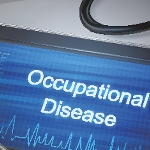 By Jim Cline and Erica Shelley Nelson
By Jim Cline and Erica Shelley Nelson
Representing the Injured or Disabled Member
Part 31: An Introduction to Workers Compensation and the Injured Public Safety Officer
This article is the 31st in a multiple part series covering the rights your injured and disabled members have and how you, as a union or guild representative, can best assist them. You may also consult an experienced workers compensation lawyer if you have legal inquiry. Over the several weeks and continuing for the next several weeks, we’ll be publishing, in various segments, information on how state and federal laws protect your members who are hurt or otherwise unable to work. We’ll cover topics including disability discrimination law, the FMLA, job protection rights under the CBA, workers compensation, disability benefits, and the right to bring a civil lawsuit.
The topics we are covering are addressed in detail in our newest book: HELPING THE INJURED OR DISABLED MEMBER: A GUIDEBOOK FOR THE WASHINGTON LAW ENFORCEMENT AND FIRE UNION REPRESENTATIVE. It is also our intention over the course of the next year to travel through the state and provide training to public safety union and guild representatives on how best to enforce these rights. Expect to hear more on that in the months ahead.
The 31st article in these newsletter series provides a discussion introducing the topic of workers compensation with several other L&I discussion to follow. For more information, visit our Premium Website . On the website you’ll find an on line version of the Injured or Disabled Member’s Guidebook and other information on the laws covering your members.
Officers and firefighters in the State of Washington are entitled to “no fault” accident and disability coverage, i.e. “worker’s compensation,” for injuries, occupational diseases, and deaths occurring in the course and scope of employment under the Industrial Insurance Act.[1] There are key differences between “injuries,” and “occupational diseases.”
The definition of “injury” under the statute is a “sudden and tangible happening, of a traumatic nature, producing an immediate or prompt result, and occurring from without, and such physical conditions as result therefrom.”[2] Practically, an injury typically occurs as the result of an event or happening on a particular day that causes specific injuries, such as an assault, or a motor-vehicle collision on duty. If you have any questions regarding the legal definition of injury or need assistance with a personal injury case, consulting a personal injury lawyer can provide clarity and support. Those who are looking for a personal injury attorney in Southfield, MI may contact Mike Morse Injury Law Firm.
An “occupational disease,” on the other hand, “is a disease or infection as arises naturally and proximately out of employment under the mandatory or elective adoption provisions of this title.”[3] “Occupational diseases” do not include mental health conditions caused by stress, but do include conditions resulting from a sudden, tangible, and traumatic event that produces an immediate result.[4]
“Occupational diseases” generally occur over a period of time. For example, firefighters who are exposed to smoke, fumes, or toxic substances over a prolonged career may suffer respiratory diseases, cancer, or heart problems. Any of these particular conditions would be considered an “occupational disease” under the Industrial Insurance Act.
Employers may choose to pay premiums directly to the State, and have the State, through the Washington State Department of Labor and Industries (L&I), manage the worker’s compensation claims and pay benefits. Instead of purchasing worker’s compensation insurance coverage directly from the State, the employer can choose to self-insure. If an employer self-insures, the employee retains the same rights and benefits as those employees insured by the State, but the employer handles the paperwork generated as part of the claim, and pays benefits under the claim. A third-party administrator (TPA) is hired by the employer to manage the claims. However, L&I continues to handle any disputes arising under the claim.
Navigating the worker’s compensation system can at times be frustrating and the challenges are sometimes greater when an employer is self-insured. Still the system is at least contemplated to be “user friendly” so that employees need not retain an attorney just because the employee suffers an on-the-job injury. At other times, when roadblocks are presented or the stakes are higher, legal counsel from a new port richey personal injury lawyer should be retained.
This series of articles attempts to describe how to navigate the system and identify when an employee might be better served having retained counsel. In the next article we’ll discuss how a claim is filed.
_____________________________
[1] Title 51, RCW.
[2] RCW 51.08.100.
[3] RCW 51.08.140, and see City of Bellevue v. Raum, 171 Wn. App. 124, 140 (2012).
[4] RCW 51.08.142; WAC 296-14-300(1)(stress caused by conflicts with a supervisor; actual or perceived threat of loss of a job, demotion, or disciplinary action; relationships with supervisors, co-workers, or the public; fear of exposure to chemicals, radiation biohazards, or other perceived hazards; objective or subjective stresses of employment; and personnel decisions); WAC 296-14-300(2); and Rothwell v. Nine Mile Falls Sch. Dist., 149 Wn. App. 771, 780, 206 P.3d 347 (2009).


